Under the Rushes Read online
Page 4
In the center of the courtyard sat the Triari, Alum Septra, and a number of other landowners. Septra was talking and the others were sitting, gathered like herd animals, and even from his position, Dorjan could see it: Septra was the tiger in their pen, not the breeding bull at all. He didn’t want to lead them, he wanted to devour them, and it was too late for the sheep to lock Septra out, now that he’d started his first course.
The murderer emerged from what appeared to be the façade of a door, and although Dorjan couldn’t see it clearly from this side, he could imagine—a bright doorway in the building, one that seemed to lead to nowhere.
And it did. None of those sheep or gazelles or deer wanted to know that right next to their graceful courtyard, with the fountain of clean water, was a hell of poverty so singularly filthy that Dorjan could smell excrement from where he crouched.
The murderer emerged and Dorjan saw the back of his head—black hair past his shoulders, curling at the ends, and efficient black trousers and boots, coupled with a black tunic belted close to his waist with a black utility belt.
Dorjan never saw his face, but he saw the man bow to Septra, and then stand, and even from a distance, he could see Septra’s smug grin. Alum Septra, the man who would murder innocent children and destroy Dorjan’s life and loved ones, stood up.
“Kyon of Kyon’s Gate is dead. Shall we have another vote, then, about continuing the war?”
“What about his son?” said the youngest Triari. “Dorjan of Kyon’s Gate is not a man to be ignored!”
“He’s a child,” Septra dismissed. “And a disgraced one. And now his father is dead, and we have a country to run. Once again. Who here favors the war?”
As Dorjan watched, horrified, grief stricken, and helpless, the Triari who ruled all of Biemansland, who ministered justice and civilization to all its citizens, stood and bowed.
In the Clutches of Darkness
Ten Years Later
DORJAN woke up and spared himself ten seconds for the dream.
It was his favorite dream, the one where he was lying next to a warm man whose identity he hadn’t discovered yet. The sun was streaming through the gauze curtains of his room at Kyon’s Gate, there was a cool morning breeze through the open shutters, and he could hear the children of the keep outside, playing. In the distance, above the horizon, the asteroids hovered, tied to the earth by their umbilical cords of woven cellulose, and the niskets, which looked like metallic blue, green, and gold butterflies or rose-and-silver flowers from far away, darted around them like the breeze in the clouds. He would listen to those sounds, smell the herb garden his mother planted every year and the giant climbing rosebush she’d planted to honor his father, and he’d roll over and nuzzle his companion, begging for some more time to touch skin on skin, cleanly, without metal hooks of regret gouging his heart with every breath.
He held the dream and rolled over, and even as he did so, he knew exactly when Areau would flinch and bound out of bed.
“I don’t like—” Areau stammered, his voice thready and panicked, and Dorjan rolled over with his eyes still closed and nodded.
“I know,” he said gruffly. “I’m sorry. I knew that.”
“You know this,” Areau said, upset, and oh, Bimuit, we didn’t want Areau upset, did we! “I beg you… I beg you, and I touch you, and you’re lonely….”
“I still know better.” Dorjan’s voice was flat, and he still didn’t want to open his eyes and confront the thing he had done the night before. Several nights before. Bimuit! He didn’t want to know how many nights they had done this, because every one felt dirtier, right down to the first one, when they’d both been lonely and torn and had needed… oh, they had needed.
But not each other.
Areau had needed a woman, one with soft hands and kindness, who would understand his need for pain and give him what he needed but not disparage him as she gave it.
Dorjan had needed succor in that time. A body, a man, someone who would love him unconditionally in spite of the thing he had done that night, with Areau’s help. They had needed, and….
Bimuit!
It had been ugly, and tainted, and painful.
DORJAN had inherited the keep and his father’s succession. Dorjan and Areau took Kyon’s body back to the keep and mourned him in a service before having the niskets scatter his ashes on the surface of the asteroids, a thing that eased the niskets’ grieving considerably and kept the keep healthy in the process. The keep was just as lovely and bucolic as Dorjan’s dream—he and Areau had been back since and he knew it was truth—but he couldn’t stay more than one fortnight, sometimes two. Areau was shamed by his scars, by his instability, by the way he screamed in his sleep and shuddered in ecstasy whenever he so much as stubbed his toe. And, of course, Dorjan didn’t want anyone to know the thing he and Areau had become. Especially in the mines, when they blooded with the niskets and ecstasy overcame them both—after those times, the thing they really were was so much more of an abomination.
But that thing hadn’t happened yet—not during that first visit, the grieving visit. During that time, Dorjan was heartsick, saddened by his father’s absence, his mother’s depression. Even the niskets were sad, their bright rainbow panoply muting to a solid gray-sky pewter. And in the midst of all that sadness smoldered Dorjan’s burning, barely banked anger, and that alone was enough to drive him from the sanctuary of home back to the house in the city, Areau at his side. His friend hated travelling by millipede rail, and he sat, body taut like a clock spring, twitching with every clack of the millipede’s legs.
They arrived back at the town house, which had been freshened and tended to by the housekeeper, Mrs. Wrinkle (who was barely in her forties that year), and sat moodily at the kitchen table over an impromptu meal of bread and fruit, waiting for the tension of the journey to fade before they took their baths and went to bed.
“I want to hurt something,” Dorjan muttered out of the blue. Dinner had been silent anyway. “I’m so angry. Home isn’t sanctuary, food isn’t food—I want to hurt something. I want to take steam armor in their midst and lay about with a scimitar until the walls of that quad run thick with blood. It’s a compulsion… it’s… it’s….” The plum in his hand burst with the tension in his fingers, and he hurled it at the wall. “Bimuit!” he shouted. He threw another plum against the wall, liking the explosion of muscle and bone, and another, and when the plums were gone, he reached to his plate and came back with bread.
It was light and wouldn’t throw well at all, and he looked at it, feeling absurd and useless.
Areau thrust a nectarine in his hand with a bit of maniacal glee. “It’s ripe, brother,” he said, honestly excited. “It will make a prodigious splat!”
Dorjan’s laughter was bitter and hard, but it was laughter, and Areau was right. The nectarine exploded against the wall in a satisfying thunk of pulp, and his laughter as he watched it drip to the floor cleansed itself, became almost a child’s laugh. He sank to his chair, giggling helplessly, absolutely sure that tears would come.
Before they did, Areau spoke again. “There is no law,” he said, his voice as calm as Dorjan had heard it since he’d seen his scarred face and body after the niskets had done their best to correct his healing.
Dorjan looked up. “You’re right,” he said, surprised. It was true. Since Kyon had died, the Triari and Forum had elected to have a military force instead of a civilian peacekeeping force. The military was gone, waging a war that was at best wrong and at worst plunging the province into a sort of voluntary oppression of the people. The word had been spread that the disaster at Kiamath Keep had been brought about by enemy misinformation. The conclusion was that poor Dorjan had been beguiled into treason by an enemy agent. It was a silly story, an insulting one, and Dorjan wanted to lay waste to more than fruit when he heard it repeated as he stalked about the polluted streets of what had once been a lovely city.
But there was no real civilian peacekeeping force—those
left to serve in it were wounded, too old, too young, unthrifty, or barely functional. No competent peacekeepers, no community service for offenders, no one to tend prisons. The justice on the streets was quick, dirty, and violent. Gangs were emerging, even then, a scant month after Kyon’s death, and the common laborer had no choice but to rely on the crazy, the immoral, and the power hungry, and hope that the man who emerged on the top of the dog pile was worthy enough to lead men.
Sometimes he was. Often he wasn’t.
“There is no law, like we learned about in lessons,” Areau repeated. “There is no law, and without law, your father will get no justice.”
Dorjan closed his eyes. He looked to the vast sink and saw that there were ragged lengths of linen, so he walked there and wet some down. He was surprised when Areau showed up at his shoulder to help.
“I put the mess in your hand,” Areau said with a faint smile. The barely there smiles only lightly stretched the scarring left by the final mag-bomb, the one that killed the boy’s parents and the stragglers in the keep. From what Areau could remember, the rest of the keep’s population hadn’t trusted in the kindness of the battalion—they’d scurried off into the margins of the retardant bubble and waited for the fire to wash over it, and disappeared when it was safe. Dorjan had exchanged missives with Lokogos Dre, who confirmed that—but he’d also let Dorjan know, slyly and with care, that many of the people who fled into the night had made their way to Dre’s own hold, and Dorjan was grateful. He’d told his mother to open the gates to any refugee from Karanos, Kiamath Keep in particular.
But the fact that some of them survived didn’t help Areau. He dreamt of the ones who didn’t. He screamed for the ones who had screamed for his help, and every morning he woke up and stretched his lame, scarred leg and rubbed his hand over the shiny lumps of tissue on his stomach, chest, and shoulder, and looked in the mirror at the ruin of what had once been the most beautiful face in Biemansland, and remembered that his sacrifice was just not enough.
So when Areau could smile just a little and say he’d helped Dorjan with the mess, that was amazing. Dorjan would do anything to get Areau to smile like that again.
“We could make a bigger mess,” Dorjan proposed, looking his friend in his bitter blue eyes.
Those eyes widened and brightened at the thought. “What sort of mess?”
Dorjan’s smile was as bitter as Areau’s eyes. “The red kind. I want his blood, Ari. All it would take would be some training—a few months, I’ll be as fit as I was before Kiamath Keep, you think?”
Areau smiled again, and this time it was a dreamy, wormwood smile too. “I could make you such things,” he said, shivering. “Things that would help you draw blood, that would protect you better than steam armor. I tried to tell them,” he rambled—but Dorjan was hanging to his every word. “I tried to tell them that the armor wasn’t necessary. I couldn’t tell them about the niskets, of course”—and Dorjan shuddered, because they were his keep’s greatest secret—“but I knew I could have them weave the elements together to create such armor… it would be light and lumium powered….” Areau turned that dreamy, bitter smile on Dorjan. “They feared it, but you wouldn’t.”
Dorjan returned that smile, but with fierceness and a lion’s share of rage. “No,” he murmured. “I wouldn’t fear it. And I’m on the Forum now. They don’t trust me, but I hear things….”
“Useful things?” Areau asked with innuendo, and Dorjan nodded, so eager he could taste the blood of his father’s murderer dripping on his tongue.
“Seductive things,” Dorjan said, shaking with excitement. “And I know where the door is and where it leads. I pass through that square every day. Your armor, weapons, my father’s nisket as eyes….”
Areau nodded and turned abruptly and started scrubbing at the walls. Dorjan did too, waiting for Areau to finish his thought. Areau had been brilliant as a child—that’s why he’d been developing the armor for the exercise on Kiamath Keep. Dorjan had long learned to give him room, let his mind work like a finely tuned clock or the gears on a millipede transport. Click-patter-click-patter-click-patter-click-patter… Areau’s brain practically made the sound as they worked.
At last the walls were clean and the towels tossed into the hamper, and Areau turned to Dorjan as they walked to their beds.
“You will start training tomorrow. I will start making your armor. In a week we will meet and see what a weapon we can forge, you think, Dori?”
Of course he did. Their plan to kill Kyon’s murderer was the sweetest thing he’d heard since the breezes at his father’s keep had carried the laughter of the niskets through his window, the last morning before he’d left home and come back to Thenis.
AREAU was a harsh taskmaster—he was. He set up an obstacle course for Dorjan in the courtyard, complete with targets and stunners and giant sandbags that would fall or hurtle out of nowhere to take Dorjan out. Once he was so busy throwing a knife at a target that he got thumped with a sandbag. He awakened ten minutes later with Areau weeping over him, as inconsolable as a child.
“You can’t do that!” he screamed as Dorjan rolled to his knees and tried to get his bearings. “You can’t! We can only do this if you promise me you’ll live!”
So Dorjan promised, and training continued, and in the meantime? Oh, in the meantime, Dorjan strode the halls of the Forum, listening, smiling, arguing the ethics of hiring a street gang to pick up trash or legalizing brothels, and pretending he didn’t know the government was a lie.
He found he could be extra convincing if he pretended to be stupid.
Well, why not? The rumor being spread about him wasn’t exactly flattering to his intelligence, right? He practiced wandering around the halls of the Forum with a vapid smile on his face, getting along with everyone and never expressing an opinion.
It was hard. There were still some Forum members who longed for the old days without wanting to go through the hard work of changing or confronting the true evils that had insinuated themselves into Biemansland. Dorjan stood in a corner once and listened for nearly half an hour as a friend of his father’s harangued him on why he wasn’t standing up and arguing for a more stringent penalty against murderers, and Dorjan managed a reasonably vacuous smile.
“Oh? Someone would carry that out?” he asked, keeping his voice disingenuous. He finished with, “I didn’t know anyone carried those out.” And while the Forum member struggled for words, Dorjan walked away.
That same day, he snuck out the secret door from the courtyard to the stews and slipped three credits to a child who claimed she could find anyone he wanted. He had a name by then, an occupation, some of the assassin’s hangouts. He gave her five more credits and asked her for secrecy. Her eyes were enormous, and he believed her when she said not even the gods would hear a nisket’s peep from her.
The training continued.
Areau would shout in Dorjan’s face, screaming until spittle flew out, as Dorjan assaulted a practice dummy with a sword. “Run, Dorjan—run, you bugger! I’ll fuckin’ lay you up, you don’t move faster!”
Dorjan’s back and shoulder muscles screamed in protest. He’d been up all night doing accounts for his father’s keep, and he was fighting exhaustion, and he’d been running, not walking but packing his Forum robes in a satchel and running, full speed, to and from the Forum to increase his pace.
And he’d been grief stricken and angry and hiding his real identity from the world.
He wasn’t sure which part of that made him snap, but one minute he was shoving the steel into the practice dummy with all of his strength, and the next he’d left the sword there, vibrating, as he hauled off and clocked Areau on the jaw.
His whole body screeched to a halt. They’d never fought. Even as small children, they had never fought, and now his knuckles were laid open and Areau was bleeding from a split down his lip and sitting in the courtyard, gazing up at Dorjan with a terrible mix of ecstasy and hunger.
“That was marvelous,�
�� he said, the unscarred portion of his face assuming a luminous peace Dorjan hadn’t seen since they’d been adolescents, when his torch for his friend had burned brightest. It was during that time that he’d watched Areau fall asleep just to see him look dreamy and soft and young, and that was the expression gazing out at Dorjan now.
Dorjan fought against his rising gorge.
“I’m sorry,” Dorjan said, looking at his knuckles absently. “I—I shouldn’t have done that.”
“Oh, you should have,” Areau purred. He stood up and stepped closer to Dorjan, into the sweating space of his chest as he fought for breath. “I’ve been hoping… God, praying, you’d do it for weeks.”
Dorjan couldn’t look him in the eyes. “Areau… look… I know the things they did to you—”
“Don’t speak of them!” Areau screamed, practically monkey-scuttling back from Dorjan as he stood.
“But they… you think I don’t notice? You think I don’t see? The cuts on your arms? The way you tear your healing scabs? They made you love it… I don’t know how….”
“You don’t know how?” Areau giggled. “It was simple. What’s the thing the people on the streets are dying for, Dori? Do you think they didn’t have plenty of that?”
Dorjan’s stomach went cold. “Dust?” he asked thinly. People died of that addiction. The only way out of that addiction was to die.
“I know what you’re thinking,” Areau said, nodding. “I know it. They came, they rubbed it into my sores, and then they stopped. I should be dead!”
“Ari!”
“I should be. But I didn’t die. No, no, no, no, no, no… I’m from Kyon’s Gate, you know, home of the fey and secret niskets, and I didn’t die. But the pain….” Areau closed his eyes and wiped a mixture of drool and blood from his chin. “Oh, the beautiful pain….”
Dorjan dropped his gaze to the ground. “You had to have been in some terrible pain,” he mumbled. “I’m sorry… I’m so sor—”

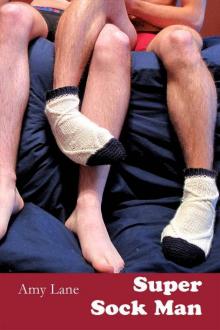 Super Sock Man
Super Sock Man Safe Heart (Dreamspun Desires Book 102)
Safe Heart (Dreamspun Desires Book 102)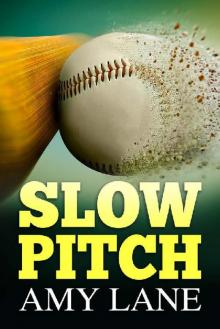 Slow Pitch
Slow Pitch School of Fish
School of Fish Shades of Henry (The Flophouse Book 1)
Shades of Henry (The Flophouse Book 1) Ethan in Gold
Ethan in Gold Hidden Heart
Hidden Heart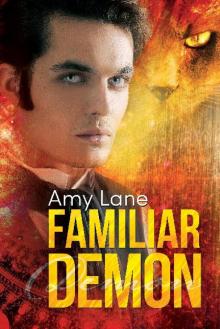 Familiar Demon
Familiar Demon Shortbread and Shadows
Shortbread and Shadows Silent Heart
Silent Heart Shortbread and Shadows (Dreamspun Beyond Book 41)
Shortbread and Shadows (Dreamspun Beyond Book 41) All the Rules of Heaven
All the Rules of Heaven Shades of Henry
Shades of Henry Homebird
Homebird Under the Rushes
Under the Rushes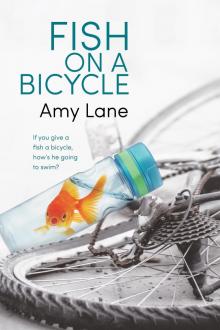 Fish on a Bicycle
Fish on a Bicycle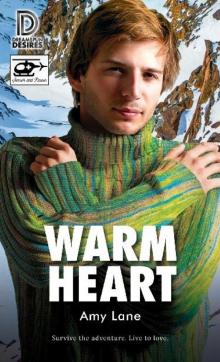 Warm Heart
Warm Heart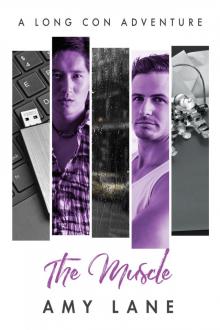 The Muscle
The Muscle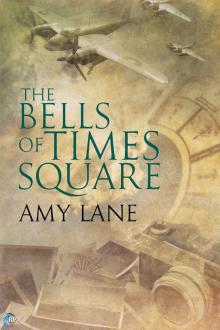 The Bells of Times Square
The Bells of Times Square![Jack&Teague [& Katy] stories 1-5 Read online](http://i1.bookreadfree.com/i/03/19/jackandteague_and_katy_stories_1-5_preview.jpg) Jack&Teague [& Katy] stories 1-5
Jack&Teague [& Katy] stories 1-5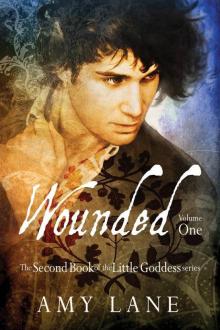 Wounded, Volume 1
Wounded, Volume 1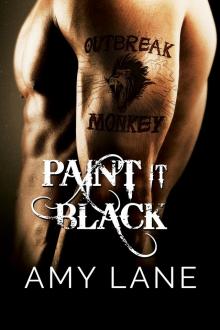 Paint It Black
Paint It Black The Virgin Manny
The Virgin Manny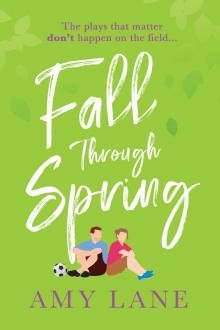 Fall through Spring
Fall through Spring Clear Water
Clear Water If I Must Lane
If I Must Lane Stand by Your Manny
Stand by Your Manny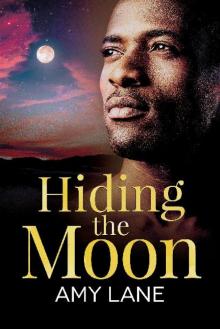 Hiding the Moon
Hiding the Moon Freckles
Freckles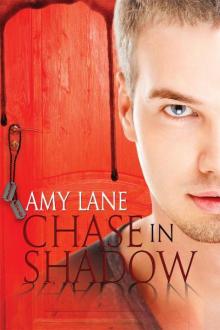 Chase in Shadow
Chase in Shadow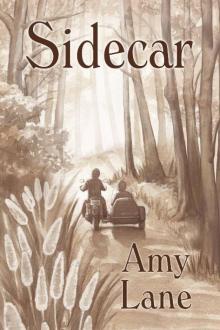 Sidecar
Sidecar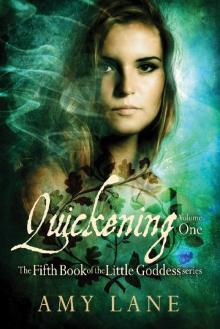 Quickening, Volume 1
Quickening, Volume 1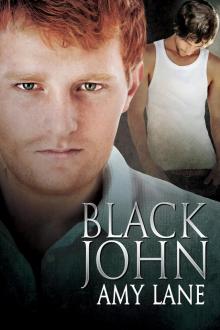 Black John
Black John Bobby Green
Bobby Green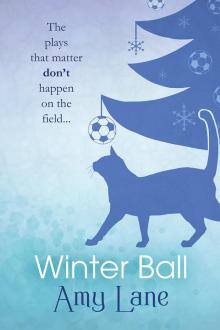 Winter Ball
Winter Ball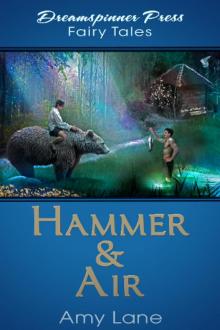 Hammer & Air
Hammer & Air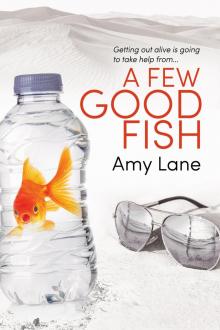 A Few Good Fish
A Few Good Fish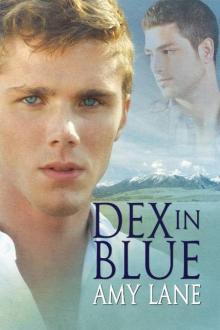 Dex in Blue
Dex in Blue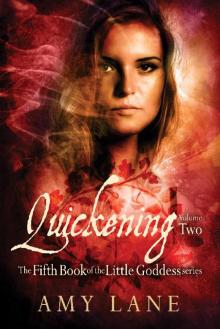 Quickening, Volume 2
Quickening, Volume 2 A Fool and His Manny
A Fool and His Manny Manny Get Your Guy (Dreamspun Desires Book 37)
Manny Get Your Guy (Dreamspun Desires Book 37)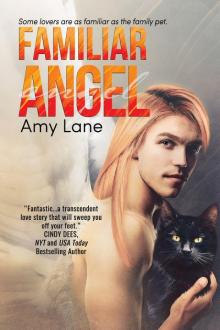 Familiar Angel
Familiar Angel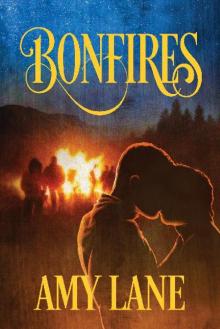 Bonfires
Bonfires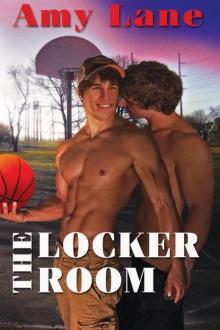 The Locker Room
The Locker Room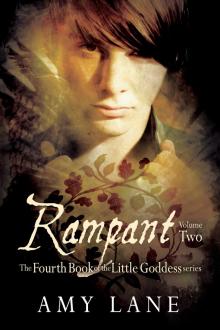 Rampant, Volume 2
Rampant, Volume 2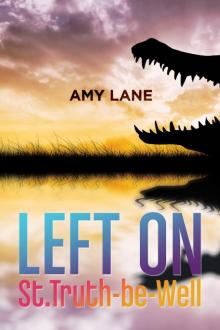 Left on St. Truth-Be-Well
Left on St. Truth-Be-Well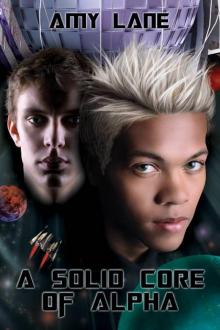 A Solid Core of Alpha
A Solid Core of Alpha Red Fish, Dead Fish
Red Fish, Dead Fish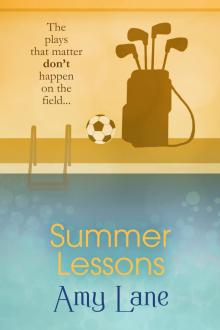 Summer Lessons
Summer Lessons Country Mouse
Country Mouse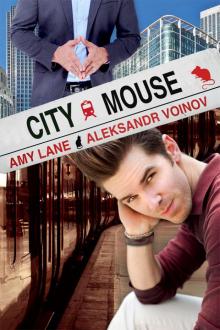 City Mouse
City Mouse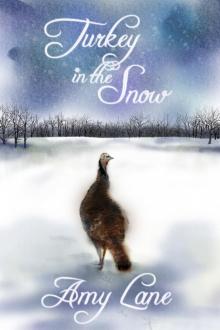 Turkey in the Snow
Turkey in the Snow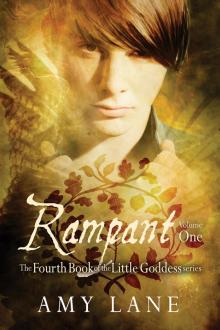 Rampant, Volume 1
Rampant, Volume 1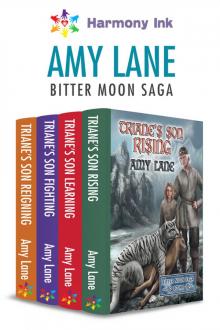 Bitter Moon Saga
Bitter Moon Saga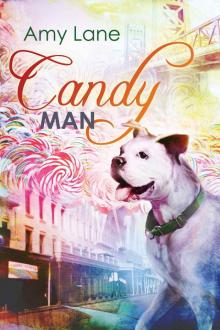 Candy Man
Candy Man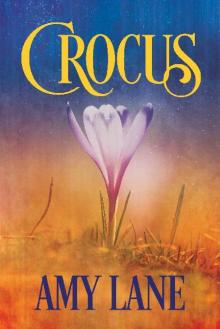 Crocus
Crocus Green's Hill Werewolves, Volume 2
Green's Hill Werewolves, Volume 2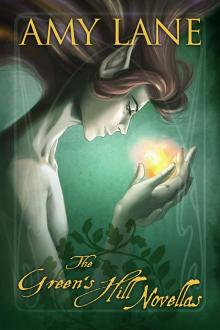 The Green's Hill Novellas
The Green's Hill Novellas